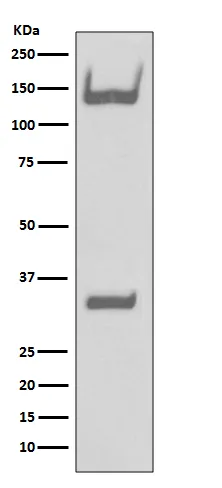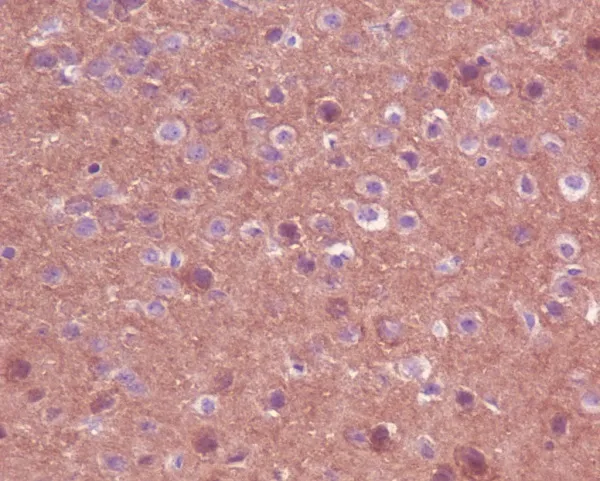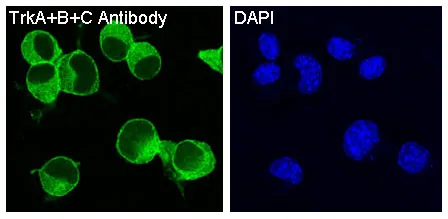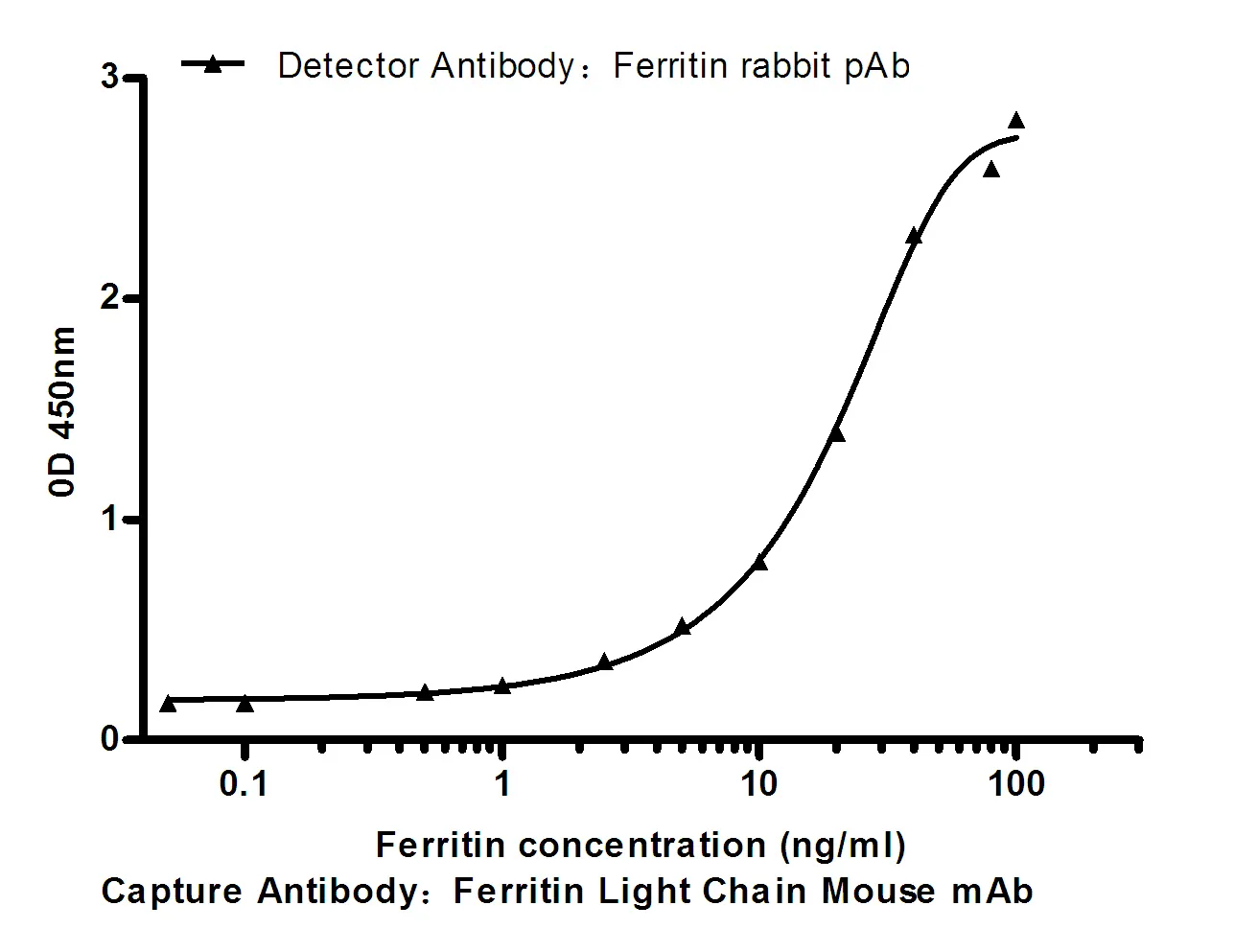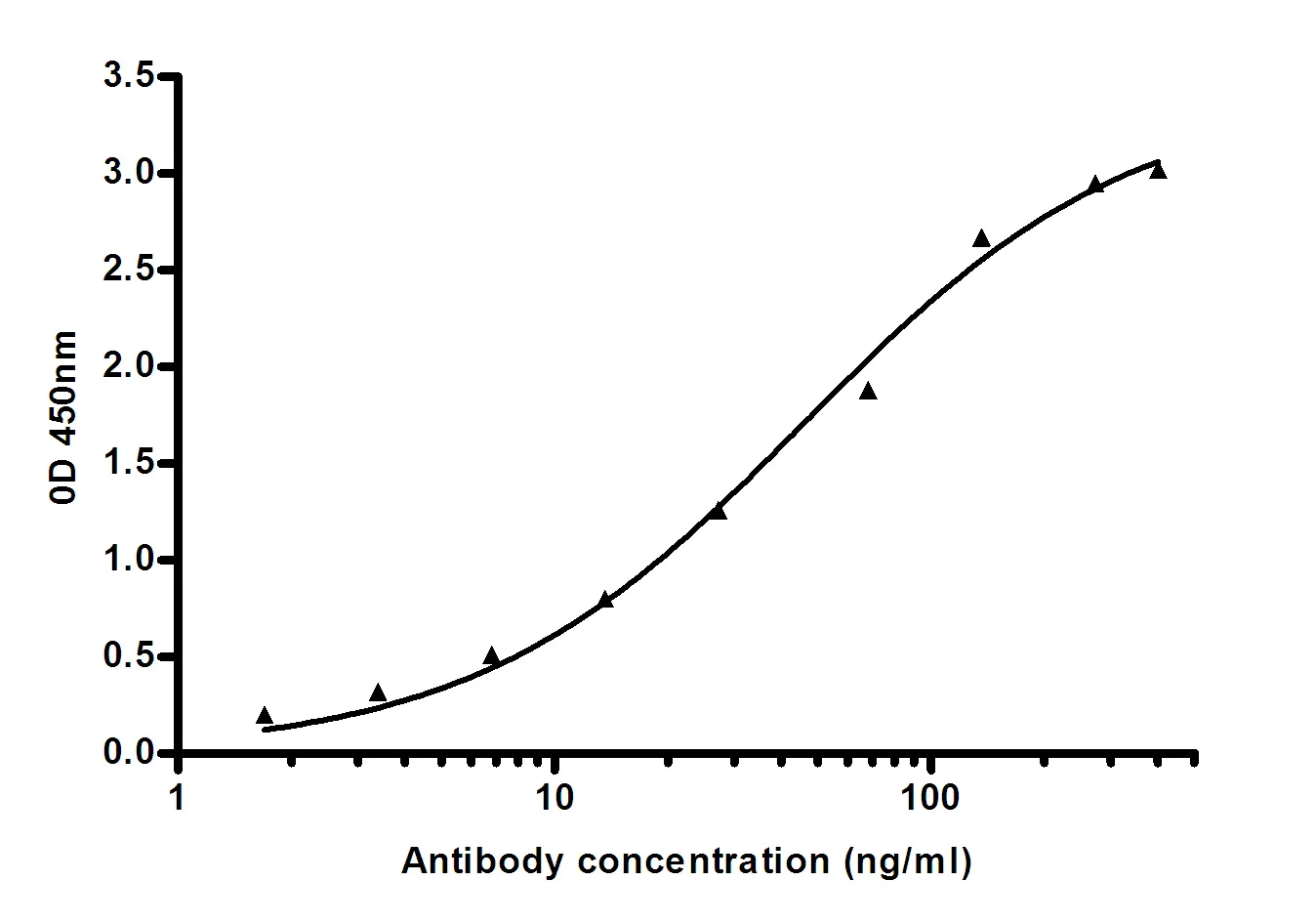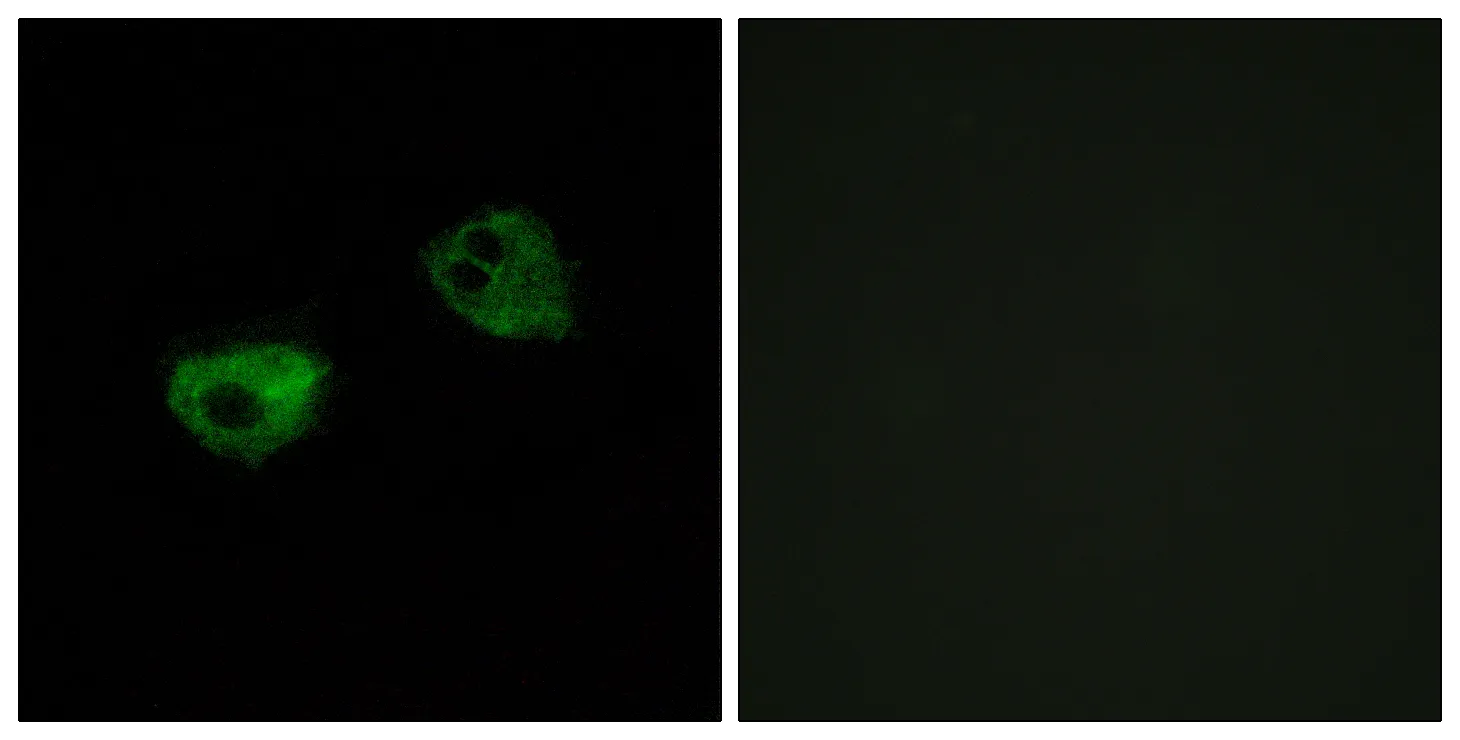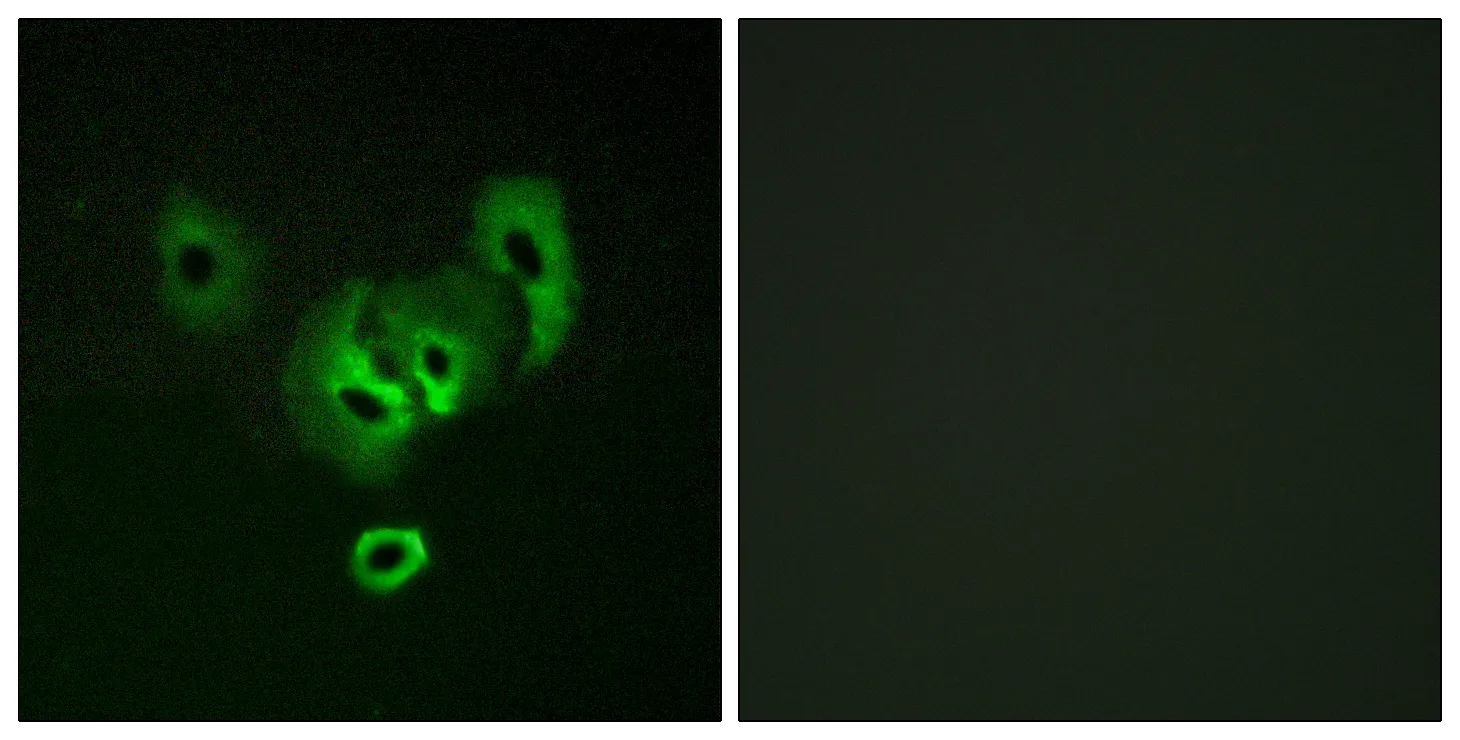Summary
| Production Name | Trk Rabbit Polyclonal Antibody |
| Description | Rabbit Polyclonal Antibody |
| Host | Rabbit |
| Application | WB,IHC-P,ICC/IF |
| Reactivity | Human,Mouse,Rat |
Performance
| Conjugation | Unconjugated |
| Modification | Unmodified |
| Isotype | IgG |
| Clonality | Polyclonal Antibody |
| Form | Liquid |
| Storage | Store at 4°C short term. Aliquot and store at -20°C long term. Avoid freeze/thaw cycles. |
| Buffer | Rabbit IgG in phosphate buffered saline , pH 7.4, 150mM NaCl, 0.02% sodium azide and 50% glycerol. |
| Purification | Affinity Chromatography |
Immunogen
| Gene Name | NTRK1/NTRK2/NTRK3 |
| Alternative Names | gp140trk; GP145-TrkB; GP145-TrkC; MTC; NTRK1; NTRK2; NTRK3; p140-TrkA; TRKA; TRKB; TrkB tyrosine kinase; TRKC |
| Gene ID | 4914/4916/4915 |
| SwissProt ID | P04629/Q16288/Q16620 |
Application
| Dilution Ratio | WB: 1:500-1:1000 IHC: 1:50-1:100 IF: 1:50-1:200 |
| Molecular Weight | Calculated MW: 87 kDa; Observed MW: 140 kDa |
Background
The family of Trk receptor tyrosine kinases consists of TrkA, TrkB, and TrkC. While the sequence of these family members is highly conserved, they are activated by different neurotrophins: TrkA by NGF, TrkB by BDNF or NT4, and TrkC by NT3. Neurotrophin signaling through these receptors regulates a number of physiological processes, such as cell survival, proliferation, neural development, and axon and dendrite growth and patterning.
Research Area
Neuroscience

